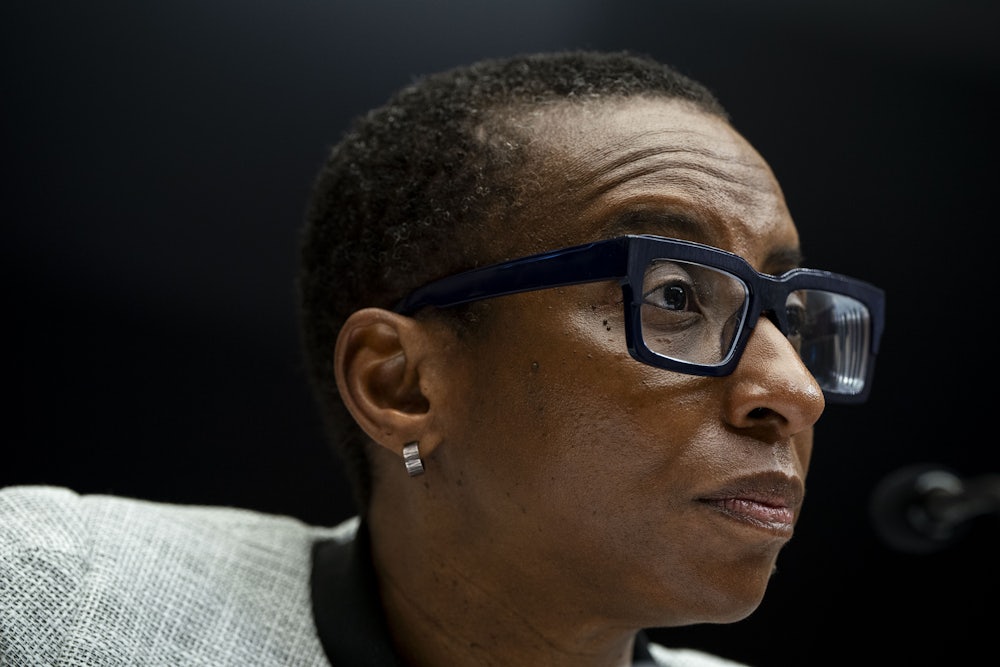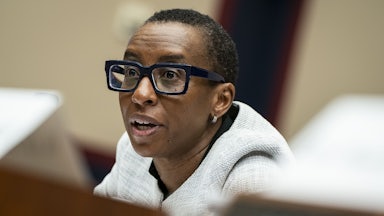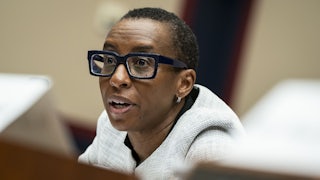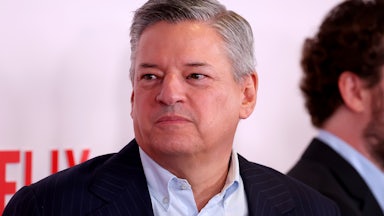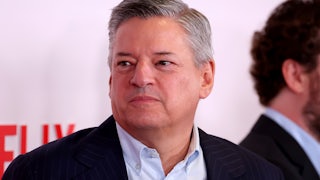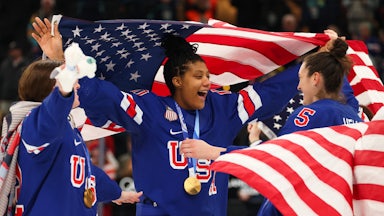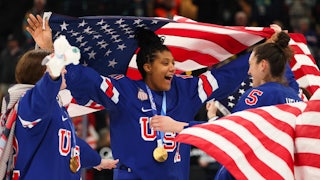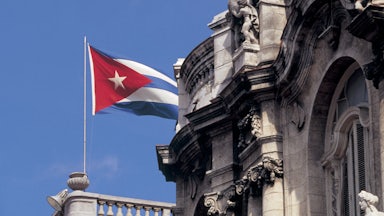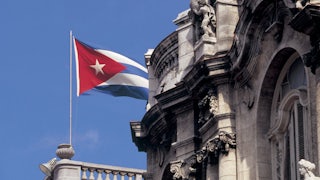I wish I could say that Harvard’s first Black president, recently the victim of an outrageous campaign led by hedge fund big shot Bill Ackman over her handling of student protests, is being hounded out of office unfairly. Ackman’s campaign was indeed appalling, as I argued here and here. But so was the mounting evidence of Gay’s plagiarism, compiled in a series of anonymous complaints published by the New York Post and the Washington Free Beacon on December 11, December 19, and January 1. On Tuesday Gay did the right thing and resigned after the most egregious example of her academic theft surfaced.
Ordinarily it would be prudent to treat anonymous accusations, not to mention anything published in the Free Beacon, with a grain of salt. That the hard-right activist Christopher Rufo, appointed by Florida Governor Ron DeSantis to the board of New College, played some role in publicizing the anonymous complaints did not inspire confidence. (In February 2023, The New Republic’s Daniel Strauss revealed Rufo committed some Harvard-related hanky-panky of his own by claiming in his bio a Harvard degree that was really a degree from Harvard’s extension school.) “It’s part of this extreme right-wing attack on elite institutions,” Harvard law professor Charles Fried told The New York Times last month. “If it came from some other quarter, I might be granting it some credence, but not these people.”
Yes, but. The “but” is that plagiarism allegations are easy to verify independently, mooting whatever malign motive lies behind them. The December 11 complaint was troubling, but it concerned Gay’s dissertation (in political science) rather than any work she produced as a professional scholar. The December 19 complaint, however, extended into Gay’s professional work, with multiple examples bad enough to prompt John McWhorter to call for Gay’s resignation in The New York Times and for Ruth Marcus to do the same in The Washington Post.
A subsequent January 1 complaint brought the number of plagiarism examples up to 47. This covered about half of all Gay’s published work, and included a shockingly long block of text lifted almost verbatim from a 1999 book by David Canon, a political scientist at the University of Wisconsin. No footnote cited Canon’s work (though it did get cited in Gay’s bibliography). At this point, it was game over.
There’s great danger that what is and ought to remain a plagiarism scandal will go down in the record books as a victory for Ackman and other Jewish donors who made an issue of Gay’s handling of campus protests surrounding the October 7 Hamas massacre. As I’ve noted before, Gay handled these matters clumsily, but not in any way that constituted a firing offense. Universities such as Harvard and the University of Pennsylvania (which knuckled under to donor pressure and pushed out president Liz Magill over her handling of similar campus protests) need to develop some backbone in dealing with tantrum-prone big-money alumni.
Harvard showed some backbone by resisting Ackman’s pressure to oust Gay over Israel and Palestine. But now it’s showing none by obscuring the reason Gay resigned.
The dishonesty begins with Gay’s own letter of resignation, which does not include the word “plagiarism.” It is a martyr’s statement that refers to “tensions and divisions that have riven our community.” Only indirectly does Gay reference the plagiarism accusations, and when she does she suggests they’re unjust. She writes of “doubts cast on my commitments to confronting hate and upholding scholarly rigor.” Oh, please. The doubts cast over Gay’s confronting hate were indeed unfair. But the doubts cast over Gay’s scholarly rigor, we’ve now learned, are entirely justified.
Harvard’s own statement does Gay one better, omitting even any indirect hint that Gay’s departure is about academic misbehavior. “While President Gay has acknowledged missteps and has taken responsibility for them,” it says, “it is also true that she has shown remarkable resilience in the face of deeply personal and sustained attacks.” This is not untruthful; Gay really was made the target of personal and sustained attacks, some of them outright racist. But again: That’s not why she quit, and it’s dishonest for Harvard to pretend it is. It’s dishonest for Harvard to protect Gay’s reputation (surely lawyers helped draft that statement) and to protect its own, by obscuring that Gay resigned over a seriously embarrassing plagiarism scandal. This is a college whose motto is supposed to be “Veritas.”
Plagiarism is not a new problem at Harvard. For years it’s been clear that Harvard (and probably universities elsewhere) treat plagiarism as a minor offense when it’s committed by faculty or administrators and a major offense when it’s committed by undergraduates. I wrote about this 22 years ago when Doris Kearns Goodwin got busted for plagiarism while she served on Harvard’s Board of Overseers. Goodwin eventually had to resign from the post, but only after a cresting wave of bad publicity spawned an editorial in The Harvard Crimson saying she had to go. Goodwin then persuaded several eminent historians to write a letter to The New York Times denying that her offense had been plagiarism at all—which, as I pointed out, was manifestly untrue.
Nothing has changed. Harvard’s first response to the plagiarism charges raised last fall was to threaten to sue The New York Post for defamation. Even David Canon, the victim of Gay’s most appalling instance of plagiarism, pretended the accusations were terribly unfair; he told the Free Beacon that “I am not at all concerned about the passages” and “This isn’t even close to an example of academic plagiarism.” (Word of advice to Canon’s students at the University of Wisconsin: Don’t expect him to treat you with corresponding lenience.) Others whom Gay plagiarized also rushed to defend her. The professional scholar’s first instinct when professional plagiarism rears its head is to deny, deny, deny.
It would be one thing if such gallantry were extended to undergraduates, but of course it isn’t. Not at Harvard, anyway. I noted in my Goodwin pieces 20 years ago that plagiarism was a hanging offense for undergrads, and it remains one today, according to an op-ed published anonymously on December 30 in The Harvard Crimson. The author is an undergraduate member of the Harvard Honor Council, which hears disciplinary cases, of which a 43 percent plurality are about plagiarism:
When students omit quotation marks and citations, as President Gay did, the sanction is usually one term of probation—a permanent mark on a student’s record. A student on probation is no longer considered in good standing, disqualifying them from opportunities like fellowships and study-abroad programs.… When a student is found responsible for multiple separate Honor Code violations, they are generally required to withdraw—i.e., suspended—from the College for two semesters.… There is one standard for me and my peers and another, much lower standard for our University’s president.
If there’s a double standard for plagiarism at Harvard there is surely a double standard at other universities. My guess is that the greatest hypocrisy will be found at the most prestigious universities, because they’re the most arrogant and have the biggest reputations to defend. But people like me have been hollering about this for two decades. Knowing this, I don’t see, even from a cynical point of view, what Harvard has to gain by pretending that grown-ups don’t plagiarize. Meanwhile, Harvard and other universities have a lot to lose by inviting university donors to believe that the firing of Penn’s Liz Magill was no one-off. It was, in fact, a one-off. Gay was pushed out because she is a plagiarist. Evidence is piling up that professional plagiarism is a bigger problem in academia than previously thought, and higher education needs to address it.
